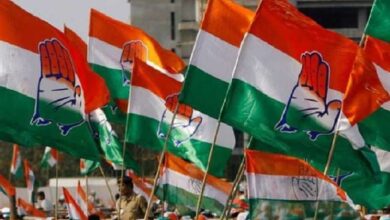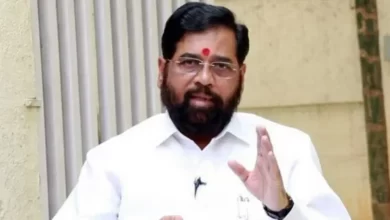Jinping’s Power and Challenges

[ad_1]
He is not going to back down from the path Jinping has taken. In response to US strategies, China has formed a coalition with Russia and Pakistan.
Satish Kumar
He is not going to back down from the path Jinping has taken. In response to US strategies, China has formed a coalition with Russia and Pakistan. Iran is also with China in this. It is clear from this that now the world is again divided into two different poles.
The radical change in China’s communist system started five years ago i.e. from 2016. To further strengthen his hold on the dictatorial system, President Xi Jinping had started work before his second term. Jinping became the President in 2012 and since then China’s conflict with the world started increasing. The confrontation was a bit slow until Jinping’s first term. But it intensified as the second term began. Today every neighboring country of China including India is troubled by it.
President Jinping is slowly writing the story of his supremacy in Chinese politics. Recently, the Communist Party of China has passed a historic resolution in which the Communist Party of China has given Xi Jinping the status of ‘Core Leader’. In this resolution of the Chinese Communist Party, he has been described as important for China and the party as a backbone.
The special thing is that in China, the status of ‘core leader’ was given to only two people, Mao Zedong in 1945 and Teng Xiaoping in 1978. Jinping has also strengthened his image in China regarding the ongoing border dispute with Taiwan, Hong Kong and India. He has taken several initiatives including ‘Common Prosperity for All’ for the third term. In such a situation, experts believe that Jinping wants to do everything in his favor before his third term so that he does not have any opposition.
There are many serious questions before the world regarding Jinping’s third term. For example, what will the world look like under Jinping’s next term? On what policy will China follow not only the neighboring countries but also America? What changes will happen in India-China relations? What strategy will China adopt regarding expansionist policies in the oceans? Will there be situations of conflict and war? These are questions that have worried many countries.
As soon as he came to power, Jinping started making the world realize that the reins of the world are now going to come to China, so its preparation and thinking should be made. By taking some steps, China also gave evidence of this. He began to prepare for the capture of the island of Sinkaku in Japan. China’s water border disputes with neighboring countries in the South China Sea began to escalate. China refused to accept Hong Kong’s fifty-year accession treaty and started a campaign to break the system of one country two system. Most importantly, China’s increasingly aggressive approach to annexation of Taiwan is seen as a major threat not only to regional peace but also to global peace.
If it is understood from a strategic point of view, then China has three enemies. One is Japan, the other is India and the third is America. China’s adamant stance with India has remained the same since 2017. From the Doklam dispute to the last year’s confrontation in the Galwan Valley of eastern Ladakh is proof of this. The third country is the US, with which China’s trade war is about supremacy over world trade. From Asia, Central Asia to Europe and Africa, the speed with which China’s steps have increased, has caused sleeplessness even to America.
The US is also committed to Taiwan that its political system and autonomy will be kept intact at all costs. China has also started trying to manipulate the international system in its own way. Whether it is an issue of international maritime law or issues related to global bodies such as the World Health Organization, China is behaving arbitrarily. That is why China is becoming a big challenge for the world and all this is being seen during the tenure of Xi Jinping.
That is why strategies to encircle China are also being made rapidly. Although China is understanding this. But he is not going to give up his expansionist policies now. Jinping has resolved to make China the biggest military power in the world. China is openly challenging America in the preparations for space war. This is the reason why America has taken rapid steps towards encircling China by taking some countries along. Together with India, Japan and Australia, a quadruple named Quad is active on the issue of China. A few months ago, the US made a military agreement with Britain and Australia, paving the way for Australia to provide nuclear submarine technology. Obviously, America is engaged in a strong barricade against China with the help of countries like India, Australia and Japan.
But he is not going to back down from the path Jinping has headed. In response to US strategies, China has formed a coalition with Russia and Pakistan. Iran is also with China in this. It is clear from this that now the world is again divided into two different poles. This conflict is not just between two countries, but also between two different political factions. The political unit of China and Russia is that of totalitarianism. Russia has again gone from democracy to totalitarianism under Putin. Like Xi Jinping, Putin will also remain President of Russia indefinitely.
However, a question also arises here whether this conflicting camp will remain united on every issue? It should not be forgotten that every country has different national interests. While China has benefited greatly from the liberal international order, Russia has suffered greatly. China has emerged as a superpower today, behind it is a liberal economy. China has very strong economic ties not only with Russia, Iran or Pakistan, but also with Europe and America. The same Russia is completely annoyed by the US-born world order.
Changes taking place within China are a challenge for India. China wants to dwarf India’s stature in the new world order. That’s why India has joined the US. Even realizing that there is a difference of opinion between India and America on many important issues. But the reality cannot be denied that China’s policies are fatal for India and South Asia.
Therefore, the support of America is indispensable for India. A US Congressional commission has also said in its report that China under the leadership of President Xi Jinping has adopted an ‘aggressive’ foreign policy towards India. Along with this, efforts have been stopped to clarify the Line of Actual Control. This has hindered the maintenance of peace. The report said clashes have escalated since Xi came to power in 2012. The Galwan clashes of 2020 are the result of Beijing’s aggressive foreign policy. The clash comes at a time when Beijing is aggressively asserting its claims to sovereignty over Indo-Pacific regions such as Taiwan and the South and East China Seas.
,
[ad_2]






